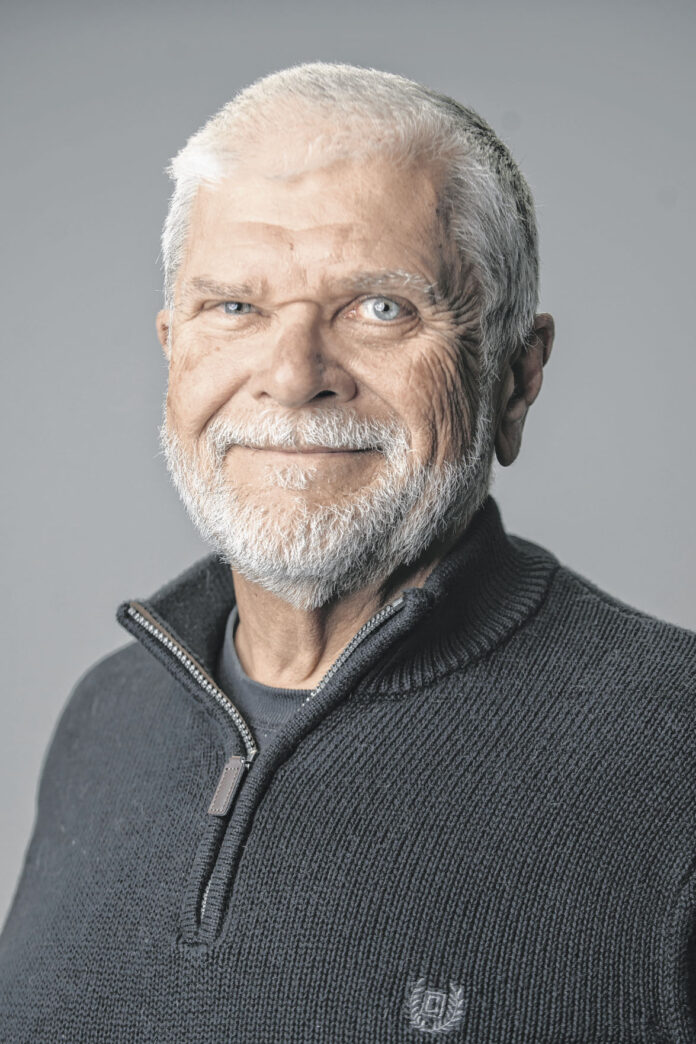By Bud Herron
For The Republic
“What is your third favorite spider?”
When a person you just met opens the conversation with that question — or inquires, “Can you take out your teeth?” — you can be assured you are in for some lessons in life and you are talking to the teacher.
Over my 13 years with Advocates for Children in Bartholomew County, many of the most remarkable of those teachers were no more than 3 feet tall.
I became a Court Appointed Special Advocate (CASA) volunteer shortly after I retired from full-time newspaper work in 2007. Later, I joined the staff full time as a Guardian ad Litem.
The job description for each position was basically the same: be a voice and a safeguard for children caught up in the court system — most of whom had been removed from their homes by the Indiana Department of Child Services (DCS) on charges they had been abused or neglected.
My first contact with these children most often took place in a home where the child had been placed for safety. Sometimes the home was that of a relative or close friend of the family willing to step in to help. Sometimes the home was that of a total stranger paid by the state to serve as a foster caretaker.
Often the children were frightened when I met them. Some huddled in a corner or peeked at me from behind a chair with a look of “go away and leave me alone” in their eyes. Others ran to me as if they had known me all their lives, hugging my legs or trying to climb up onto my lap.
Whether the child was openly scared of or overly affectionate with this new stranger, each took a while to get to know. Real conversations rarely began right away. Nearly all the children had wounds. Some of the wounds could be seen on their bodies; some wounds were not physical, but just as real.
I quickly learned there is no quick route to getting to know a child. Conversation was their choice and on their timetable, not mine. Patience and a lot of Tinkertoy, Candy Land, Barbie and Hot Wheels time was needed.
After repeated visits, however, the child usually saw I was no threat and opened a conversation while we played or read a book. Older children might get right to the point — like the child who sat listening to his mother telling me she never hit him. Looking my way and rolling his eyes, he said, “I hope you don’t believe THAT whopper.”
The most frequent question was “when can I go home?” Almost universally, children long to be “home,” even with those who have injured or neglected them.
But with the smaller children — kindergarten age or younger — that question usually is interwoven with a lot of other questions, even harder to answer:
Why are your ears so big?
Where do rabbits get plastic eggs?
Why do cats barf all the time?
Why does Mommy eat my candy?
How much do monkeys cost?
In reality, none of the questions really mattered. Many times the child did not even wait for an answer before going on to the next question. The listening ear of a CASA volunteer met the child’s needs.
When I started volunteering as a CASA almost 14 years ago, I was nearly as apprehensive about my ability to do the job as many children are about having a stranger come through the door of their foster homes.
I worried about working with parents who might not accept my presence. I worried about my ability to write or speak to the court on behalf of the child. I worried about my ability to make a positive difference in a child’s life.
What I found was the most important part of being a CASA is just “being there for the child.”
I hope you will consider joining me as a CASA volunteer. The children need you and so does Advocates for Children, which seldom has enough volunteers to go around.
I encourage you to call Advocates for Children at 812-372-2808 for more information or go to the website at www.apowerfulvoice.org.
Bud Herron is a retired editor and newspaper publisher who lives in Columbus. He served as publisher of The Republic from 1998 to 2007. Contact him at [email protected].





